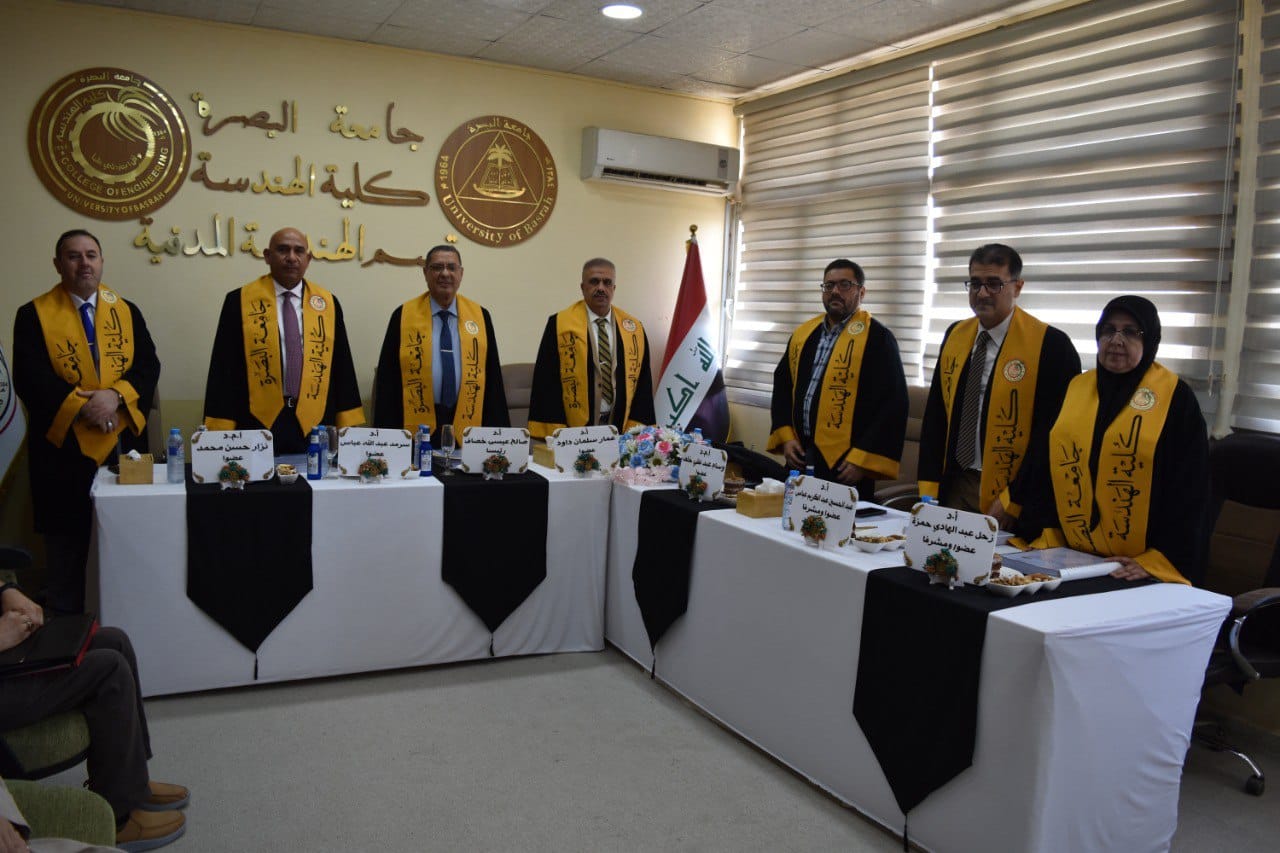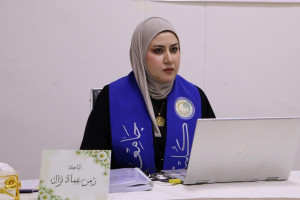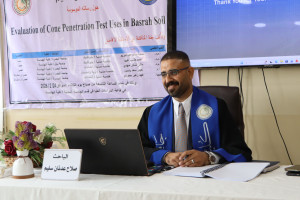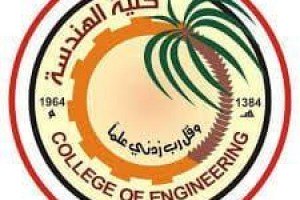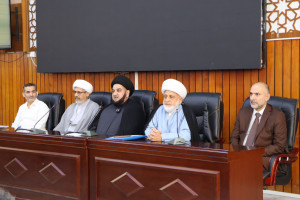
Researcher Zahraa Hussein Obaid's doctoral thesis was discussed at the College of Engineering, Department of Civil Engineering, University of Basra, entitled "Investigation of the Best Potential Location of Reservoirs and Dams Suitable for Water Harvesting in Northern Iraq
Introduction: Iraq is increasingly experiencing water scarcity due to climate change and severe drought, making effective water resource management critical. Rainwater harvesting (RWH) technology offers a viable solution to mitigate this crisis. This study is considered one of the most important solutions to address the problem of freshwater scarcity in Iraq, particularly in Basra Governorate, which is currently suffering from the expansion of the salt intrusion in the Shatt al-Arab.
Main objectives: The study aims to analyze rainfall data using satellites, determine the best rainfall distribution methods, study the characteristics of water basins, and select optimal sites for dam construction using advanced techniques such as the Analytical Hierarchy Model (AHP).
Results: More than 60 suitable sites were identified for the construction of dams that enable rainwater harvesting. The amount of harvested water was estimated at 25.23 billion cubic meters over a 5-year return period and 40.78 billion cubic meters over a 100-year return period. The study results indicate that harvested water represents only 25% of the total water available in water basins in northern Iraq. However, the harvested water will be sufficient to meet the needs of more than 97 million people in Iraq and could remain sufficient until 2100. The results of the HEC-HMS model showed a high agreement between actual runoff and simulations, enhancing the model's accuracy in predicting discharge